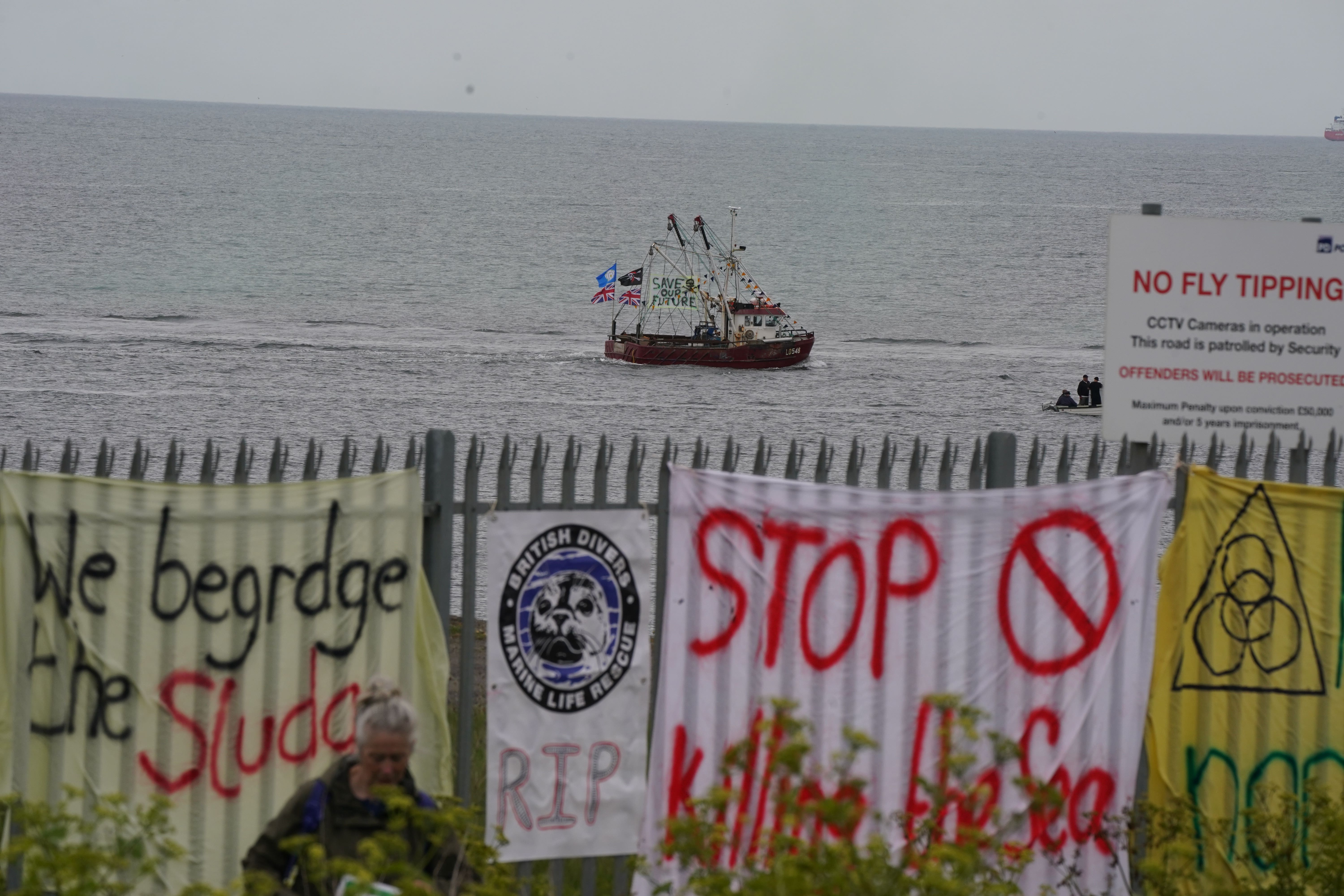‘Exceptionally unlikely’ crab deaths caused by freeport dredging, report says
The report, written by a panel of independent experts, examined the cause of mass crab deaths on the North Sea coast in 2021.

Your support helps us to tell the story
From reproductive rights to climate change to Big Tech, The Independent is on the ground when the story is developing. Whether it's investigating the financials of Elon Musk's pro-Trump PAC or producing our latest documentary, 'The A Word', which shines a light on the American women fighting for reproductive rights, we know how important it is to parse out the facts from the messaging.
At such a critical moment in US history, we need reporters on the ground. Your donation allows us to keep sending journalists to speak to both sides of the story.
The Independent is trusted by Americans across the entire political spectrum. And unlike many other quality news outlets, we choose not to lock Americans out of our reporting and analysis with paywalls. We believe quality journalism should be available to everyone, paid for by those who can afford it.
Your support makes all the difference.It is “exceptionally unlikely” that mass crab deaths on the coastline from Hartlepool to Whitby were caused by dredging to expand a port in Teesside, an independent panel has concluded.
A mass die-off of marine life on the coastline saw crustaceans washed ashore between October and December 2021, with dying creatures “twitching” and displaying lethargic behaviour.
There were distressing scenes of large numbers of dead and dying lobsters and crabs on beaches, while fishing crews warned that sparse catches offshore following the event were “catastrophic” for their livelihoods.
Research by academics, backed by the fishing industry, suggested the incident could have been caused by industrial pollutant pyridine, possibly from dredging in the mouth of the River Tees to maintain channels for port traffic.
Teesside is home to one of the Government-backed freeports – special economic zones offering tax breaks and lower tariffs. There had been calls for a halt to dredging for the new freeport pending a full analysis of the situation.
However, the independent panel, made up of academics, industry experts, and chaired by the Department for Environment, Food, and Rural Affairs (Defra) chief scientific adviser Gideon Henderson, found it was “very unlikely” the cause was pyridine or another toxic pollutant.
Researchers from York University and the Environment Agency could not detect pyridine in the seawater, and toxic chemicals found in sediments in the Tees were “significantly lower” than needed to cause crab mortality, the panel said.
Instead, the panel concluded on Friday it was “about as likely as not” that a pathogen new to UK waters – a potential disease or parasite – caused the crab deaths.
“Although there is no direct evidence of a novel pathogen – a disease or parasite – it would explain the key observations including mortality over a sustained period and along 70km of coastline, the unusual twitching of dying crabs and the deaths being predominantly crabs rather than other species,” the panel said in a statement.
“It is also possible that a combination of factors led to the unusual mortality, rather than one of the factors the panel considered.”
Mr Henderson said in a press release that the panel was “unable to identify a single clear cause for the deaths”.
He said: “The report summarises thorough and insightful analysis of diverse relevant data by an impressive group of leading marine scientists from across the UK.
“Their combined knowledge allowed expert assessment of all possible causes of the unusual crustacean mortality. The panel was unable to identify a single clear cause, but it has been able to point to those more likely to explain the key features of the outbreak.”
An earlier investigation into the incident, led by Defra, had pointed the finger at an algal bloom as the likely cause.
However, the new report also found this was “unlikely”.
Labour MP for Stockton North Alex Cunningham said that theory, which he claimed the Government had “hidden behind”, had been “found out”.
He called on the Government to launch a “fully independent and entirely transparent” investigation into the cause of the mass deaths.
In response, Conservative Simon Clarke, the MP for Middlesbrough South and East Cleveland, called Mr Cunningham’s claims “absolutely irresponsible”.
He added on Twitter: “A panel of experts have established today that Alex’s theory of events having stemmed from dredging is a